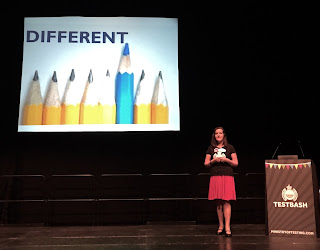Some years ago, I was pairing with a developer. We often would do work on the code that needed creating, working on the developer home ground. So I invited us to try something different - work that was home ground to me.
There was a new feature the other developers had just called complete, that I had not had time to look at before. No better frame of cross-pollinating ideas, or so I thought.
Just minutes into our pairing session of exploring the feature, I asked out loud something about sizes of things we were looking at. And before I knew, the session went from learning what the feature might miss for the user to the developer showing me bunch of tools to measure pixels and centimeters, after all, I had sort of asked about sizes of things.
By end of pairing session, we did not do any of the work I would have done for the new feature. I was steamrolled and confused, even deflated. It took weeks or months and a conference talk to co-deliver on pairing before I got to express that we *never* paired on my work.
I am recounting this memory today because I had a conversation with a new tester in a team with one of testerkind, and many of developerkind. The same feelings of being the odd one out, being told (and in pairing directed) to do the work the developer way resonated. And the end result was an observation on how hard it it to figure out if you are doing good work as tester when everyone thinks they know testing, but you can clearly see the results gap showing their behaviors and results don't match their idea of knowing testing so well.
- Listen and make space more. Look for that true pairing where both contribute, and sit with the silent moments. Resist the temptation of showing off. You never know what you would learn.
- Appreciate that testing is not one thing, and it is very likely that the testing you do as developer is not the same as what someone could add on what you did. Be a better colleague and discover the results gap, resisting the refining the newer person to a different center of focus.


